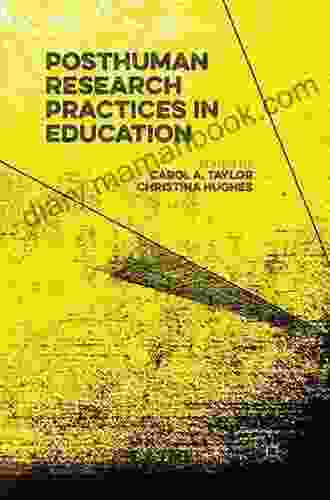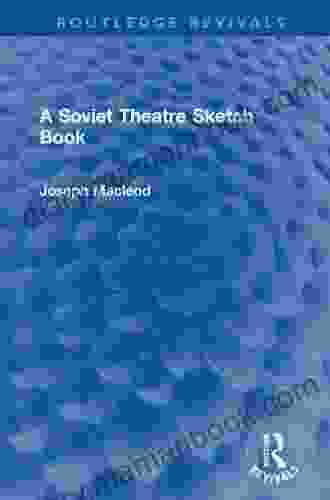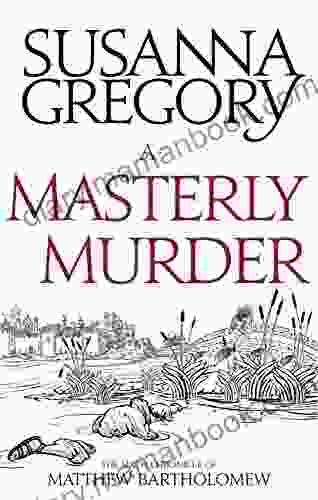Posthuman Research Practices In Education: Exploring New Frontiers of Teaching and Learning

The field of education is undergoing a profound transformation in the wake of rapid technological advancements and the emergence of new understandings of human subjectivity and agency. Posthumanism, a philosophical and theoretical perspective that challenges traditional notions of the human as a rational, autonomous individual, has emerged as a powerful lens for rethinking research practices in education.
5 out of 5
| Language | : | English |
| File size | : | 1467 KB |
| Text-to-Speech | : | Enabled |
| Enhanced typesetting | : | Enabled |
| Print length | : | 294 pages |
| Screen Reader | : | Supported |
| Hardcover | : | 180 pages |
| Item Weight | : | 1.05 pounds |
| Dimensions | : | 6.5 x 0.75 x 9.75 inches |
Posthuman research practices in education offer a radical departure from conventional approaches, privileging the interconnectedness of humans with other beings, including animals, machines, and the environment. This article explores the theoretical foundations, methodologies, and implications of posthuman research practices in education, arguing for their potential to transform teaching and learning by opening up new avenues for inquiry and fostering a more just and equitable society.
Theoretical Foundations of Posthumanism in Education
Posthumanism in education is rooted in the belief that the human is not a fixed or essential category, but rather a constantly evolving and situated being. This perspective challenges the traditional dualism between mind and body, human and non-human, and emphasizes the interconnectedness of all living beings.
Posthumanist scholars argue that the traditional focus on the individual learner in education has limited our understanding of the complex ways in which learning takes place. By recognizing the agency of non-human actors, such as technology, animals, and the environment, we can gain a more holistic and nuanced understanding of the learning process.
Methodologies of Posthuman Research in Education
Posthuman research practices in education draw on a variety of methodologies that prioritize the interconnectedness of humans and non-humans. These methodologies include:
- Ethnography: This method involves observing and documenting the interactions between humans and non-humans in educational settings.
- Autoethnography: This method involves reflecting on one's own experiences as a researcher and learner to gain insights into the posthuman condition.
- Documentary: This method uses film and other visual media to capture the complexities of posthuman learning environments.
- Digital storytelling: This method uses digital technologies to create narratives that explore the posthuman condition.
These methodologies allow researchers to capture the subtle and often invisible ways in which humans and non-humans interact and influence each other in educational settings.
Implications of Posthuman Research Practices for Education
Posthuman research practices in education have a number of implications for the way we think about teaching and learning. These implications include:
- Rethinking the role of the teacher: Posthuman research practices challenge the traditional view of the teacher as the sole authority in the classroom. Instead, they emphasize the importance of collaboration between humans and non-humans in the learning process.
- Creating more inclusive learning environments: By recognizing the agency of non-human actors, posthuman research practices can help us to create more inclusive learning environments that are responsive to the needs of all learners.
- Fostering a more just and equitable society: Posthuman research practices can help us to understand the ways in which power and inequality are embedded in educational systems. This understanding can lead to the development of more just and equitable educational practices.
Posthuman research practices in education offer a powerful lens for rethinking the way we teach and learn. By challenging traditional notions of the human and embracing the interconnectedness of all living beings, we can create more inclusive, just, and equitable educational experiences for all.
Posthuman research practices in education are a rapidly growing field with the potential to transform teaching and learning. By challenging traditional notions of the human and embracing the interconnectedness of all living beings, these practices can help us to create more inclusive, just, and equitable educational experiences for all.
As we continue to explore the possibilities of posthuman research practices in education, we must be mindful of the ethical and social implications of this work. We must also be open to new ways of thinking and learning, and to the possibility that the future of education may be more posthuman than we ever imagined.
5 out of 5
| Language | : | English |
| File size | : | 1467 KB |
| Text-to-Speech | : | Enabled |
| Enhanced typesetting | : | Enabled |
| Print length | : | 294 pages |
| Screen Reader | : | Supported |
| Hardcover | : | 180 pages |
| Item Weight | : | 1.05 pounds |
| Dimensions | : | 6.5 x 0.75 x 9.75 inches |
Do you want to contribute by writing guest posts on this blog?
Please contact us and send us a resume of previous articles that you have written.
 Top Book
Top Book Novel
Novel Fiction
Fiction Nonfiction
Nonfiction Literature
Literature Paperback
Paperback Hardcover
Hardcover E-book
E-book Audiobook
Audiobook Bestseller
Bestseller Classic
Classic Mystery
Mystery Thriller
Thriller Romance
Romance Fantasy
Fantasy Science Fiction
Science Fiction Biography
Biography Memoir
Memoir Autobiography
Autobiography Poetry
Poetry Drama
Drama Historical Fiction
Historical Fiction Self-help
Self-help Young Adult
Young Adult Childrens Books
Childrens Books Graphic Novel
Graphic Novel Anthology
Anthology Series
Series Encyclopedia
Encyclopedia Reference
Reference Guidebook
Guidebook Textbook
Textbook Workbook
Workbook Journal
Journal Diary
Diary Manuscript
Manuscript Folio
Folio Pulp Fiction
Pulp Fiction Short Stories
Short Stories Fairy Tales
Fairy Tales Fables
Fables Mythology
Mythology Philosophy
Philosophy Religion
Religion Spirituality
Spirituality Essays
Essays Critique
Critique Commentary
Commentary Glossary
Glossary Bibliography
Bibliography Index
Index Table of Contents
Table of Contents Preface
Preface Introduction
Introduction Foreword
Foreword Afterword
Afterword Appendices
Appendices Annotations
Annotations Footnotes
Footnotes Epilogue
Epilogue Prologue
Prologue Daneyal Anis
Daneyal Anis Vitalis Abeng
Vitalis Abeng James Macgregor Burns
James Macgregor Burns Rafael G Esteque
Rafael G Esteque Aleksandar Miljkovic
Aleksandar Miljkovic James Engelhardt
James Engelhardt Patric Richardson
Patric Richardson Gerald Murnane
Gerald Murnane Michelle Willingham
Michelle Willingham Herbert Schildt
Herbert Schildt Lee Canter
Lee Canter Tony Ross
Tony Ross Eva Marie Wood Wolf
Eva Marie Wood Wolf Stephany Travers
Stephany Travers Josie Brown
Josie Brown Aurora Hanson
Aurora Hanson Serge Kozlovsky
Serge Kozlovsky Dimitrios Kravvaris
Dimitrios Kravvaris Portia Macintosh
Portia Macintosh Devesh Path Sariya
Devesh Path Sariya
Light bulbAdvertise smarter! Our strategic ad space ensures maximum exposure. Reserve your spot today!

 Salman RushdieHow Our Clothes Cover Up Fashion Sins: A Comprehensive Guide to Camouflaging...
Salman RushdieHow Our Clothes Cover Up Fashion Sins: A Comprehensive Guide to Camouflaging...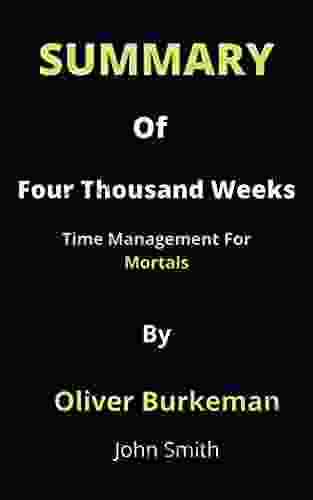
 Kenzaburō ŌeSummary of Four Thousand Weeks by Oliver Burkeman: Unlocking a Calmer, Richer...
Kenzaburō ŌeSummary of Four Thousand Weeks by Oliver Burkeman: Unlocking a Calmer, Richer... Henry GreenFollow ·9.7k
Henry GreenFollow ·9.7k Kenzaburō ŌeFollow ·14.1k
Kenzaburō ŌeFollow ·14.1k Walt WhitmanFollow ·9.4k
Walt WhitmanFollow ·9.4k Chandler WardFollow ·13.5k
Chandler WardFollow ·13.5k Max TurnerFollow ·9.2k
Max TurnerFollow ·9.2k Joe SimmonsFollow ·10.2k
Joe SimmonsFollow ·10.2k Troy SimmonsFollow ·6.3k
Troy SimmonsFollow ·6.3k Quentin PowellFollow ·7.5k
Quentin PowellFollow ·7.5k

 Jorge Luis Borges
Jorge Luis BorgesThe Truth About the 15 Qualities That Men Secretly Admire...
Every woman wants to be loved and...
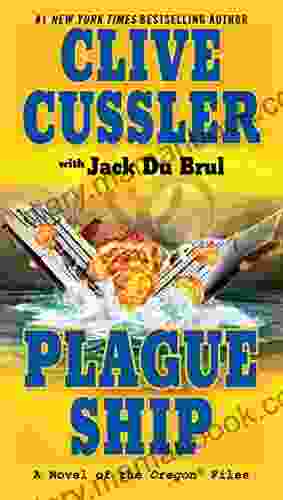
 Francisco Cox
Francisco CoxPlague Ship: Unraveling the Mystery of the Oregon Files
The Oregon Files, a collection of classified...
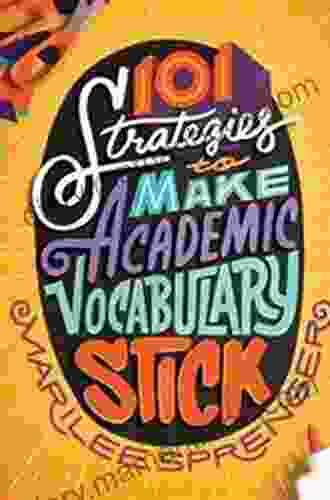
 Rudyard Kipling
Rudyard Kipling101 Strategies to Make Academic Vocabulary Stick: A...
Academic vocabulary is an...
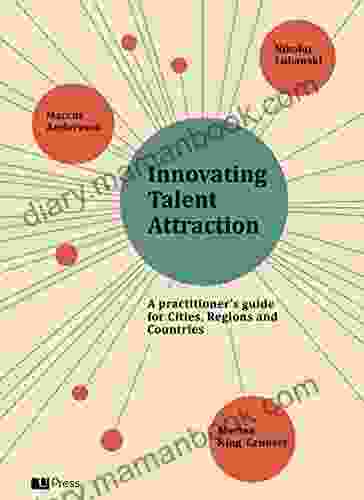
 Fletcher Mitchell
Fletcher MitchellPractitioner Guide for Cities, Regions, and Countries:...
The world is...
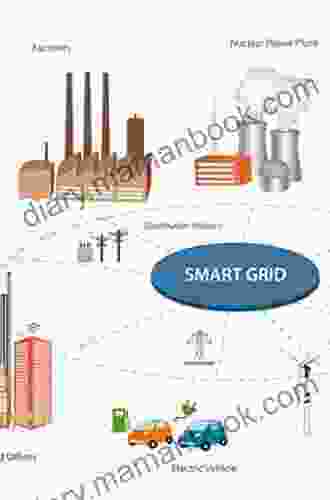
 Emilio Cox
Emilio CoxOptimization and Security Challenges in Smart Power Grids
Smart power grids (SPGs) are emerging as a...

 Chandler Ward
Chandler WardMiles Davis and the Civil Rights Movement in America: A...
Miles Davis, the iconic jazz...
5 out of 5
| Language | : | English |
| File size | : | 1467 KB |
| Text-to-Speech | : | Enabled |
| Enhanced typesetting | : | Enabled |
| Print length | : | 294 pages |
| Screen Reader | : | Supported |
| Hardcover | : | 180 pages |
| Item Weight | : | 1.05 pounds |
| Dimensions | : | 6.5 x 0.75 x 9.75 inches |


